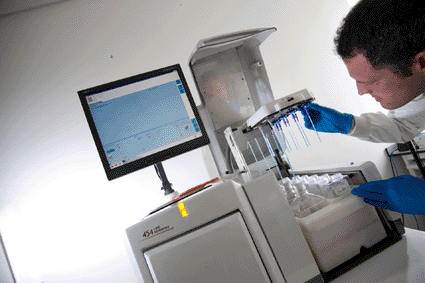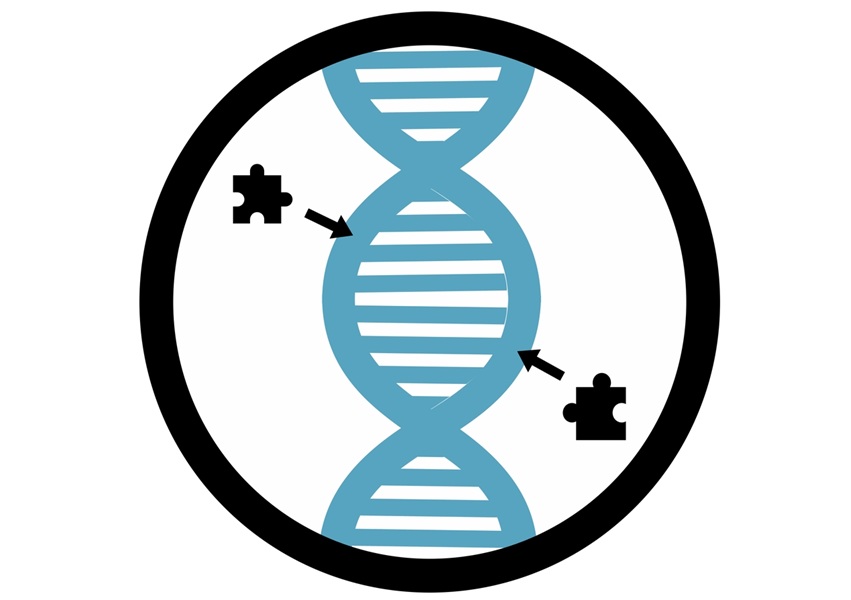DNA Sequencing Methods Identify Hereditary Breast Cancer Risk
By LabMedica International staff writers
Posted on 23 Feb 2011
New DNA sequencing methods significantly reduce the turnaround time and cost of a major test for the identification of hereditary breast cancer risk.Posted on 23 Feb 2011
The advanced gene sequencing process successfully identifies all mutations in the coding regions of two genes associated with inherited breast cancer–BRCA1 and BRCA2.

Image: The Roche-454 GS FLX Pyrosequencer, a Massively Parallel DNA sequencing system (photo courtesy Roche).
The NewGene (New Castle upon Tyne, United Kingdom) diagnostic test utilizes the Roche (Burgess Hill, United Kingdom;) 454 GS-FLX platform for complete sequencing of all BRCA genes. This technology platform represents a much faster and higher capacity DNA sequencing process than is associated with the traditional Sanger technique currently offered by the NHS.
There are around 40‚000 new cases of breast cancer reported every year‚ of which between 5% and 10% are due to the hereditary form of the disease. Faults in the BRCA1 and BRCA2 genes are the most frequent cause of inherited breast cancer.
Onset occurs at an early age in hereditary breast cancer and women with mutations have an 80% lifetime disease risk as well as an increased risk of some other forms of cancer. It is therefore very important that mutation carriers be identified as soon as possible.
NewGene, a genetic testing company jointly owned by Newcastle Hospitals NHS Foundation Trust (Newcastle upon Tyne, United Kingdom) and Newcastle University (Newcastle upon Tyne, United Kingdom) developed the advanced gene sequencing process. The new test will be available at around half the cost of current NHS hereditary breast cancer testing.
Because of the cost of existing molecular diagnostic methods, the current test is only offered to those whose family history suggests that they are at increased risk compared to the general population. This disadvantages many patients‚ especially from small families‚ who may be wrongly classified as moderate or low risk and therefore not eligible for the full sequencing test.
Dr. Michael Wright, assistant medical director of Newcastle Hospitals NHS Foundation Trust and a director of NewGene said, "Existing NHS breast cancer gene testing uses 20-year old technology that is both time consuming and costly. At a time when NHS budgets are under severe pressure the development of this new test is therefore an exciting breakthrough.” He added, "Through our partnership with NHS organizations we have access to clinical patient samples, which have enabled us to validate our testing and ensure identification of all mutations.”
NewGene was established to bring the benefits of high throughput gene sequencing to the NHS, to meet the specific need within the NHS and wider health sector for rapid and cost effective molecular diagnostic tests, and to reduce waiting times for test results. This is being achieved both by creating additional capacity for molecular testing and by expanding the range of tests available into other clinical specialties.
Related Links:
NewGene
Newcastle Hospitals NHS Foundation Trust
Newcastle University













